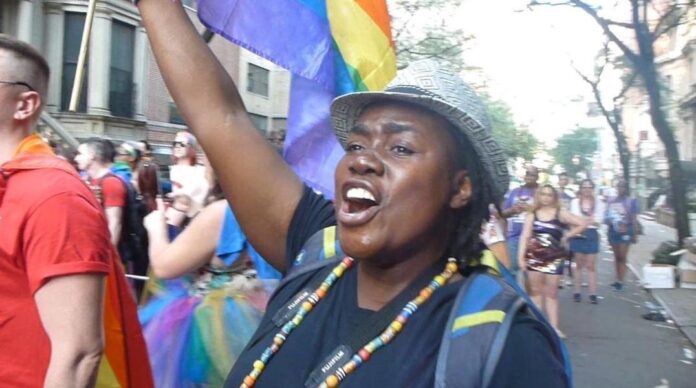The Ugandan artist and activist Leilah Babirye has spoken out against the recent anti-homosexuality law passed by the Ugandan parliament, which would make homosexual acts punishable by death. “We human rights activists condemn the Ugandan bill for introducing capital and life imprisonment sentences for homosexuals,” Babirye writes on her Instagram feed. The New York-based sculptor fled Uganda in 2015 after being publicly outed in a local newspaper.
The new anti-LGBTQ bill, passed 21 March, introduces sentences of 20 years for a “person who commits the offence of homosexuality” plus a fine of one billion shillings (around £216,000) for “media houses that publish materials that promote homosexuality”.
As well as making merely identifying as gay illegal for the first time, friends, family and members of the community would be legally bound to report individuals in same-sex relationships to the authorities.
In some cases, the death penalty will be imposed. “A person who commits the offence of aggravated homosexuality is liable, on conviction, to suffer death,” reads the bill which was presented by Robina Rwakoojo, the chairperson for legal and parliamentary affairs. The bill will now go before President Yoweri Museveni who can veto it or sign it into law.
Babirye adds on social media that there is “no turning back. We shall fight with all we have. We are also ready to interpret the whole story of the Bible with the quotes used to penalise the LGBTI [Q] community… shame upon all members of parliament in Uganda.”
“This deeply repressive legislation will institutionalise discrimination, hatred, and prejudice against LGBTI people, including those who are perceived to be LGBTI, and block the legitimate work of civil society, public health professionals, and community leaders,” Tigere Chagutah, Amnesty International’s director for East and Southern Africa, told the BBC.
“Babirye’s multidisciplinary practice transforms everyday materials into objects that address issues surrounding identity, sexuality and human rights,” says a statement from Stephen Friedman gallery, who represents the artist.
Her work is made from debris that Babirye scavenges from the streets of New York, such as bicycle tyres that she braids into hair, or discarded chains and tin cans that she welds and hammers into earrings. She also frequently uses traditional African masks to reflect the diversity of LGBTQI identities. In 2021, she held her first European solo show at Stephen Friedman gallery during London Gallery Weekend.

























